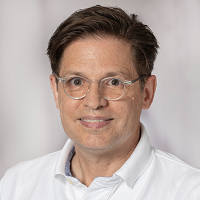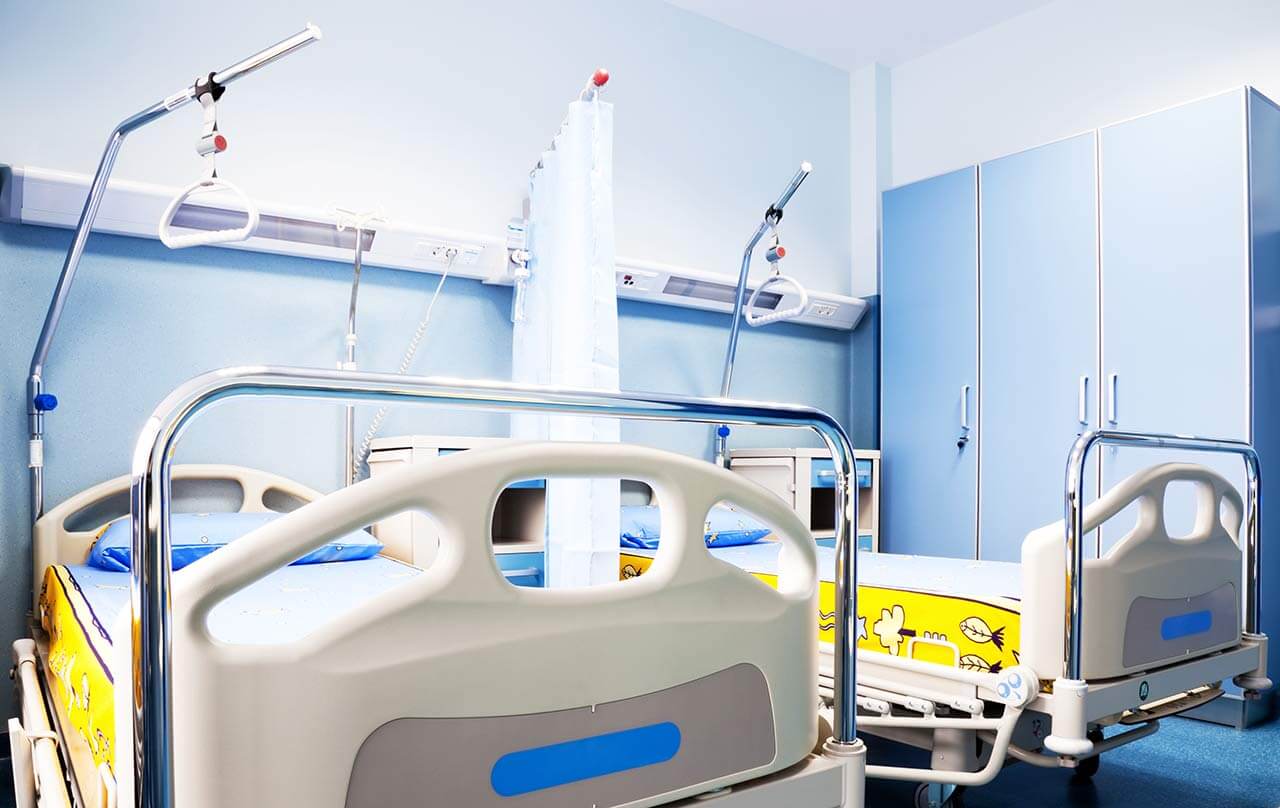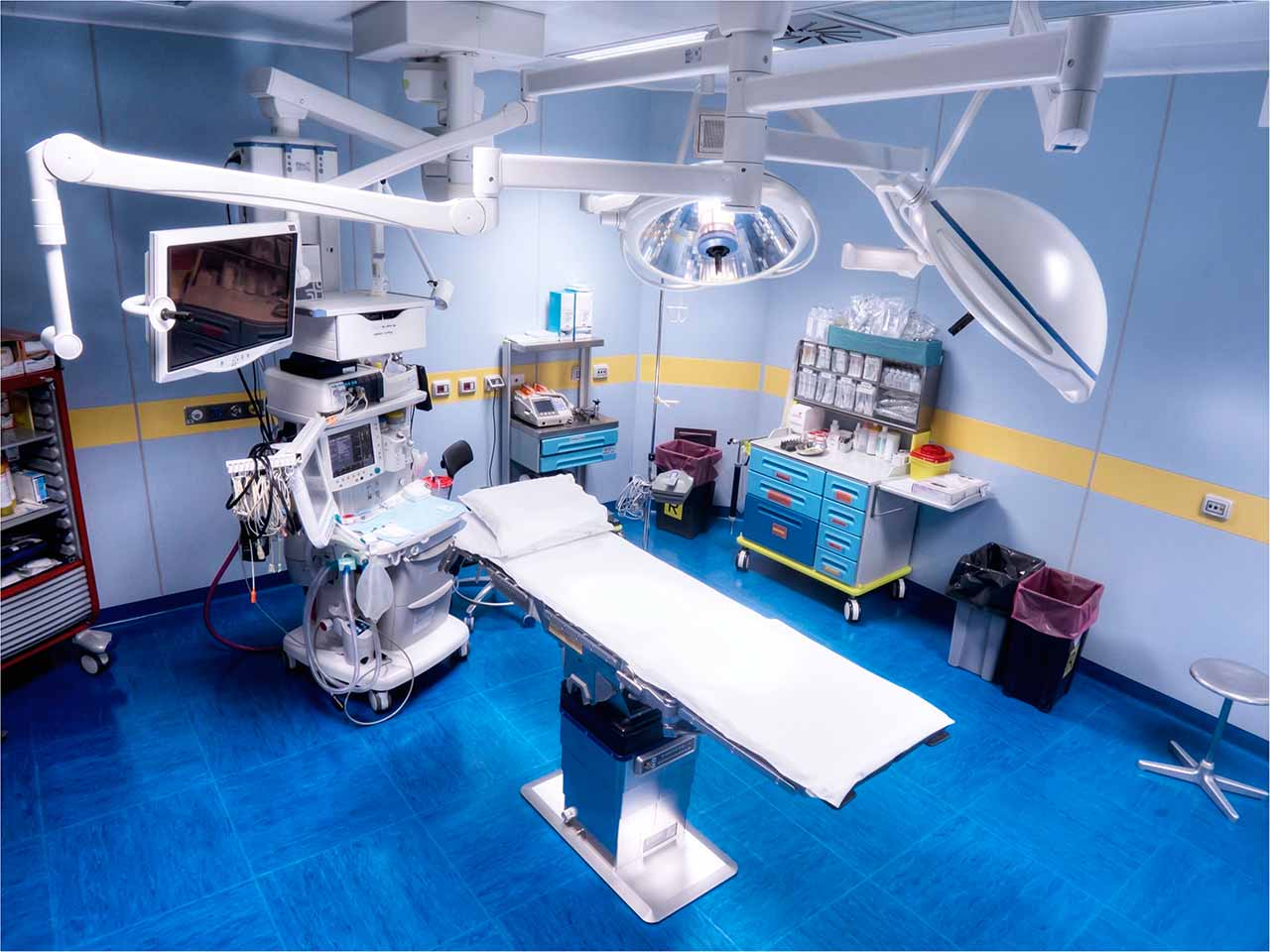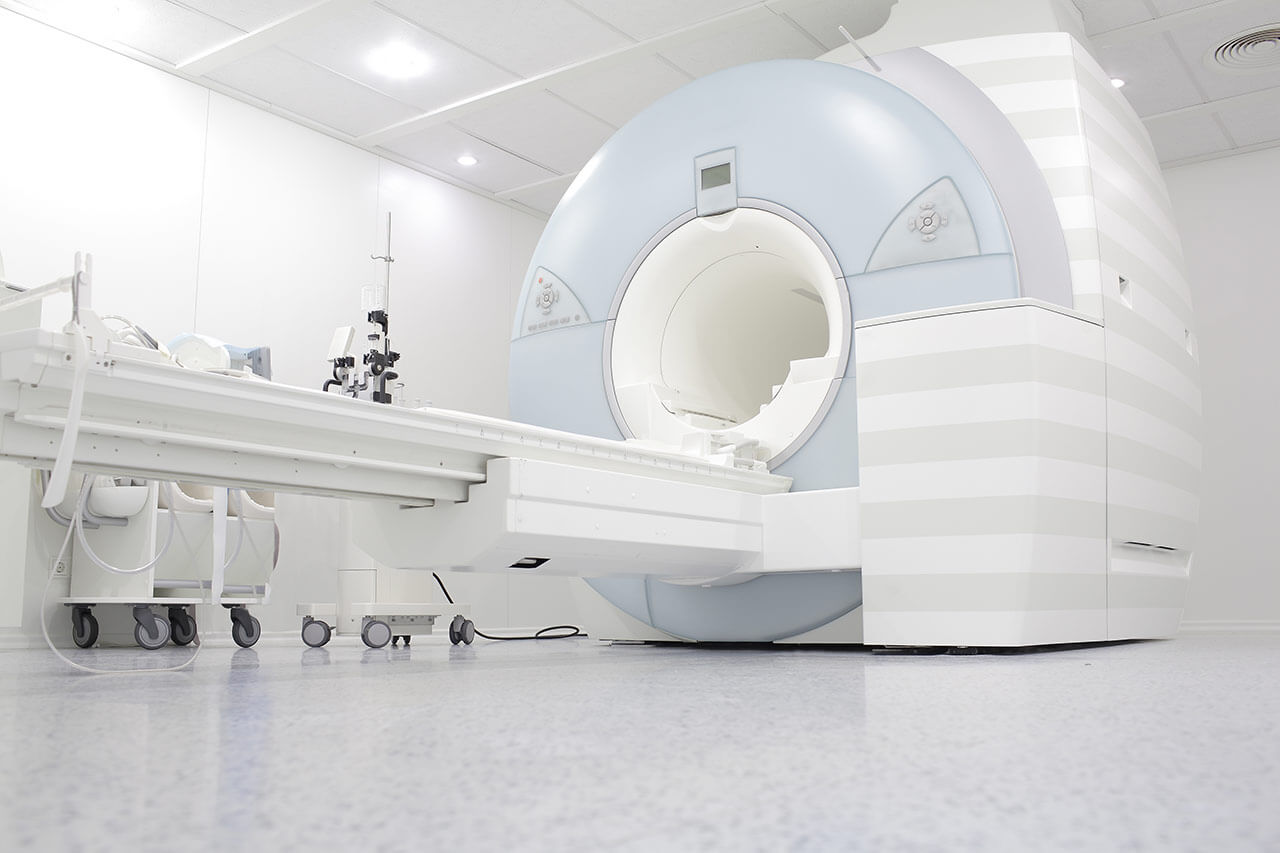
The program includes:
- Initial presentation in the clinic
- clinical history taking
- review of medical records
- physical examination
- laboratory tests:
- complete blood count
- biochemical analysis of blood
- inflammation indicators (CRP, ESR)
- indicators blood coagulation
- TSH-basal
- blood gas analysis
- chest x-ray examination
- electrocardiogram (ECG)
- echocardiography (ECHO)
- high-resolution computed tomography (HR-CT)
- pulmonary function test
- preoperative care
- sternum osteotomy and rib mobilization using
Nuss procedure - symptomatic treatment
- control examinations
- the cost of essential medicines and materials
- nursing services
- full hospital accommodation
- explanation of future recommendations
Required documents
- Medical records
- Chest X-ray (if available)
Service
You may also book:
 BookingHealth Price from:
BookingHealth Price from:
About the department
The Department of Pediatric Cardiothoracic Surgery at the Asklepios Children's Hospital Sankt Augustin offers the full range of modern surgical interventions for the treatment of congenital and acquired heart defects, as well as pathologies of the respiratory system. The specialists of the medical facility admit newborns, young children, as well as adolescents under the age of 18. The department has a perfect infrastructure for optimal care of young patients. The operating rooms have state-of-the-art equipment, which allows the doctors to perform the most sparing surgical treatment. The department's team of surgeons is convinced that it is possible to achieve an excellent result in the treatment of heart defects in children only when providing comprehensive medical care in interdisciplinary cooperation with specialists in the field of prenatal diagnostics, cardiology, intensive care, genetics, etc. With the necessary expert knowledge, long experience and access to medical innovations, the department holds leading positions in the area of its specialization in the European medical arena. In addition, the specialists have unique professional skills in the treatment of rare and complex heart pathologies in children. The department is headed by Prof. Dr. med. Boulos Asfour.
The department successfully performs surgery with and without the use of a heart-lung machine. The main goal of the department is the timely repair of congenital heart defects to prevent damage to the brain and other organs due to oxygen deficiency or blood stasis. As a rule, with combined defects (for example, ventricular septal defect and aortic arch stenosis), all disorders are repaired during a single operation – doctors perform a simultaneous surgical intervention.
The department has vast experience in aortic valve reconstruction in children. Valve preservation surgery does not require long-term anticoagulant therapy with warfarin, marcumar, or their analogues. Thanks to the preservation of the patient's valve tissue, it can grow, which is especially important when treating children. Another priority of the department's work is hybrid surgery. With certain heart defects, for example, in the case of muscular, namely, a deep-seated, ventricular septal defect, it will be difficult for the surgeon to detect and effectively close the defect between the numerous muscle bundles in the right ventricle. In this case, it is more appropriate to carry out a hybrid intervention, in which the defect is closed during an open echoscopy-guided surgery. This intervention is performed in cooperation with the specialists in pediatric cardiology.
The department's medical team is also competent in surgery for respiratory diseases. Particular attention is paid to the surgical treatment of lung, mediastinal and pleural tumors, thoracic aortic aneurysms and congenital thoracic deformities (pectus carinatum, pectus excavatum and combined chest wall deformities). The specialists prefer low traumatic operations, and therefore video-assisted thoracoscopic surgery is widely used in clinical practice. Such interventions are performed under endoscopic imaging guidance, with the use of special instruments that are inserted into the thorax through small skin incisions. At the final stage of the operation, absorbable sutures are applied on the incisions, which will not need to be removed in the future. After such interventions, the patient does not experience severe pain and recovers quickly, the risks of postoperative complications are almost zero.
The department's range of medical services includes:
- Surgery for cardiovascular diseases
- Surgical treatment of hypoplastic left heart syndrome (Fontan procedure)
- Surgical treatment of aortic valve insufficiency/stenosis
- Surgical repair of the improper position of large vessels extending from the heart (transposition of the great vessels)
- Surgical treatment of aortic isthmus stenosis
- Surgical treatment of Ebstein's anomaly
- Surgical treatment of ventricular septal defect
- Surgical treatment of atrial septal defect
- Surgical treatment of Tetralogy of Fallot
- Surgical treatment of persistent truncus arteriosus
- Surgical treatment of anomalous pulmonary venous drainage (total and partial)
- Surgical treatment of pulmonary atresia
- Surgery for respiratory diseases
- Surgical resection of lung, mediastinal and pleural tumors
- Surgical treatment of thoracic aortic aneurysms
- Surgical treatment of congenital chest wall deformities: pectus carinatum, pectus excavatum and combined chest wall deformities
- Other surgical options
The main areas of the department's specialization include:
- Corrective surgery with and without a heart-lung machine
- Palliative surgery for single ventricle defects
- Minimally invasive surgery with optimal cosmetic results
- Valve preservation surgery (for example, for aortic valve stenosis)
- Hybrid interventions
- Video-assisted thoracoscopic surgery
- Modern postoperative intensive care (including ECMO)
- Other areas of specialization
Curriculum vitae
Higher Education, Postgraduate Training and Professional Career
- Study of Human Medicine at the Justus Liebig University Giessen.
- Internship in the Department of Cardiothoracic Surgery at the University Hospital Muenster.
- 1993 Research Fellow, Department of Pediatric Cardiac Surgery, Boston Children's Hospital, Harvard Medical School.
- 1996 Research Fellow, Johns Hopkins University School of Medicine, Baltimore, Maryland.
- 1998 Senior Physician in the Department of Pediatric Cardiac Surgery at the University Hospital Muenster.
- 2002 Beginning of work in the Department of Pediatric Cardiothoracic Surgery at the Asklepios Children's Hospital Sankt Augustin.
- Since 2006 Head Physician of the Department of Pediatric Cardiothoracic Surgery at the Asklepios Children's Hospital Sankt Augustin.
- October 2019 Headed the newly founded Department of Pediatric Cardiac Surgery at the University Hospital Bonn.
Research Interests
- Early repair of congenital heart defects.
- Organ growth stimulation in hypoplasia.
- Quality management of congenital heart disease treatment.
- Single ventricle defect repair.
Teaching Activities
- Congenital heart defects, Semmelweis University.
- Congenital heart defects, University of Duisburg-Essen.
- Congenital heart defects, University of Muenster.
Memberships in Medical Professional Societies
- German Cardiac Society.
- German Society for Pediatric Cardiology.
- German Society for Thoracic Surgery.
- German Society of Cardiothoracic Surgery.
Photo of the doctor: (c) Asklepios Klinik Sankt Augustin GmbH
About hospital
The Asklepios Children's Hospital Sankt Augustin positions itself as an ultramodern maximum care medical facility for children and adolescents. A distinctive feature of the hospital is the exceptionally high quality of medical service, a sensitive attitude and compassionate care for young patients. The hospital diagnoses and treats children of all age groups, ranging from premature infants to adolescents. The treatment is based on an integrated approach, whereas parents are also involved in the therapeutic process. They serve as a reliable support to their children.
The hospital is proud of its unique experience of more than 40 years. The hospital has 225 beds for the treatment of young patients on an inpatient basis. More than 9,000 inpatients undergo treatment here annually, and about 40,000 more children receive outpatient medical care. The number of patients of the hospital increases every year, which indicates the prestige of the medical facility in Germany and abroad.
The hospital has 15 specialized departments, including the Department of Pediatric and Adolescent Medicine, Pediatric Urology, Pediatric Cardiology, Pediatric Cardiac Surgery, Pediatric Orthopedics, Pediatric Neurosurgery. The medical team of the hospital consists of more than 850 employees. The department's doctors have excellent reputation in professional circles and make every effort to provide effective treatment.
In their clinical practice, doctors pay due attention to interdisciplinary cooperation, which allows them to cover the entire spectrum of pathologies in children, including complex and rare clinical cases.
The services of the hospital meet the most strict requirements of the German healthcare system. The quality of medical services is regularly monitored by external and independent expert commissions. Since 2009, the hospital has been awarded the "Ausgezeichnet. FÜR KINDER." certificate, which is the most prestigious one for pediatric medical facilities in Germany. In addition, the hospital has the "Aktion Saubere Hände" certificate that guarantees the maximum safety of treatment for young patients and the compliance of the hospital with the highest hygiene standards.
Photo: (с) depositphotos
Accommodation in hospital
Patients rooms
The patients of the Asklepios Children's Hospital Sankt Augustin live in comfortable rooms designed in bright colors. The standard room furnishings include an automatically adjustable bed, a bedside table, a wardrobe, and a TV.
Meals and Menus
The patients receive an individual, self-selected breakfast and dinner. Lunch is prepared centrally for all patients. Parents can dine at the on-site cafeteria.
Television
After agreeing with the parents and the medical staff of the hospital, young patients may watch TV in the rooms of their department. The rooms for parents also have TVs.
Religion
The hospital has a prayer room where young patients and their parents can be alone for prayer. Divine services are held on Wednesdays from 12:15 to 12:30.
Accompanying person
When treating children under the age of 7 years or if special care is necessary, one of the parents may stay for free in their child’s patient room (a separate bed is provided), meals are included. To do this, one should register in the appropriate department. In other cases, as well as for the second accompanying person, accommodation and meals should be paid separately (hostel for parents or apartments in Ronald McDonald Haus).




